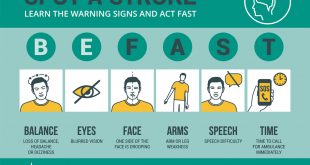

Are you having ongoing relationship issues with your partner or lover? Do you wonder why you act in ways that perpetuate tension and conflict? The challenges we experience in our current relationships often stem from traumas in previous relationships or bonding issues in childhood. Are there past relationship traumas that still affect how you perceive men or women and influence how you interact with them? Have you experienced the trauma of abandonment, betrayal, affairs, lies, or non-consensual sexual interactions, or have you been accused of such? The trauma from these experiences can stealthily live on in our brain and nervous system and be the trigger that quickly turns loving relationships into ones of conflict and struggle.
Relational trauma can start early, even prenatally, as the developing fetus can sense conflict between their parents. Infants who don’t form healthy bonds with their caregivers can grow into adults who find it difficult to form healthy & secure bonds with others. Avoidant and insecure bonding patterns often result. Childhood traumas can carry over into dating, marriage, friendships, and work relationships and may continue for many generations if not resolved. Relational trauma from emotional/physical abuse, neglect, narcissism, abandonment, addiction, and nonconsensual sexual interactions can lead to ongoing mental health difficulties, such as anxiety, depression, and addiction, that are quickly passed on to our children and their progeny through generational trauma.
Do You Suffer Anxiety or Depression From
Relationship Trauma?
Are you enmeshed in anxiety-producing and dysfunctional relationship patterns that repeat themselves? Relationship trauma can be both the cause of relationship disharmony and the result of relational conflict. Anxiety, depression, addiction, avoidance of social situations, dissociation, poor self-image, and the inability to set boundaries or respect boundaries are all potential symptoms of underlying relational trauma.
When we look back over our childhood and young adulthood, we all have memories we would rather forget: the death of a trusted adult such as a grandparent, a teenage heartbreak, a parent’s divorce, or an awkward and non-consensual sexual interaction. However, those memories become complex trauma when intrusive thoughts and traumatic memories from our past carry over into our present thoughts and “live with us”, in an emotionally charged manner, in our daily lives.
With complex trauma, our brains and bodies are stuck in a trauma loop that prevents us from returning to a relaxed state of mind. We may become overwhelmed with anxiety and flashbacks when we think about certain people & situations or when we encounter triggering events that remind us of the traumatizing situation. Traumatized people can flip into complex trauma instantly, going from being loving to being unhinged in the blink of an eye.
For many of us, the relationship traumas that we’ve previously experienced may seem to be a thing of the past. We want to think that we’ve moved on. However, unless fully resolved, traumas often remain available for being triggered. The dynamics that emerge from our most intimate and bonded relationships are often the very things that trigger these traumatic memories and rewire our personalities from being loving into being dysregulated with fear, anxiety, and distress!
When we experience a traumatic event or are reliving the memory of one, the brain’s limbic system takes over, and we can lose the ability to communicate civilly or see things accurately. Our brainwaves shift into the high beta range, and we enter a state of “fight, flight, fawn, or freeze.” Some of us never return to healthy self-regulation. Many others eventually reregulate themselves, but only until the next trauma trigger occurs. Over time, these high-alert states can become the new norm as our brain and body remain anxious, hypervigilant, and unable to relax or return to a state of balance fully.
The dysregulated brainwave patterns caused by relational trauma can make us fearful, argumentative, anxious, distrustful, depressed, avoidant, obsessive, insecure, controlling, addictive, and susceptible to complex trauma symptoms. They also frequently cause sleep disturbances. People often turn to and get caught up in drugs, food, sex, pornography, romantic fantasies, and other addictions to relieve the dysregulation caused by traumatic memories within their nervous systems.
The adverse consequences of relationship trauma can inhibit our ability to form positive and secure relationships. If you’d like to be able to sustain productive and healthy relationships with others, it’s essential that your brain be in a state of healthy regulation and that past relationship traumas are resolved. This frees up your nervous system to be less reactive and supports you in being a loving and compassionate partner and friend.
You Can Begin The Healing Process
Healthy brainwaves are associated with a natural state of feeling happy and balanced, which leads to the likelihood of greater harmony in our relationships. Relationship traumas can disrupt these healthy brainwaves and produce characteristic dysregulated brainwave patterns that can be identified through a Brain Map. This is a simple, safe, and noninvasive way to assess for brainwave imbalances.
Once brainwaves are assessed, neurofeedback treatments can help retrain and balance the brain and make it less likely to be reactive to memories of past trauma. Neurofeedback therapy is a safe, non-invasive, drug-free form of biofeedback that addresses brain dysregulation and helps the brain learn how to function more optimally by re-regulating and normalizing brainwave activity.
Neurofeedback is both enjoyable and powerful. Your brain wave patterns are monitored to determine optimal function, and healthy brain waves are effortlessly rewarded while watching a video or movie. Over time, the neurofeedback system retrains your brainwaves into more healthy regulation. Your brain responds to this treatment by creating new, healthier neural connections and trimming the old trauma-based pathways. Neurofeedback can help your brain stay in these balanced states, allowing you to think clearer, feel more positive, regulate your emotions, better deal with stress, alleviate depression and anxiety symptoms, and sustain positive, healthy relationship dynamics. Over multiple sessions, resiliency is often restored.
Eye Movement Desensitization and Reprocessing (EMDR) is a unique psychotherapy treatment that elegantly complements neurofeedback. It facilitates the processing of traumatic memories and helps resolve them. Distress is relieved, negative beliefs are reformulated, and physiological arousal is eliminated or significantly reduced.
At The Brain Wave Center, we take a comprehensive approach to brain health. We begin with a Brain Map to assess your brainwave patterns. We look for dysregulation and observe how your brain wave imbalances relate to your symptoms of relationship trauma. We also examine how your physical health and diet impact your emotional health and how lingering past traumas keep your brain ruminating with unhealthy thought patterns. Where other therapies have failed, brain mapping, EMDR, and neurofeedback have boosted resilience and successfully repaired the mental health consequences of relationship traumas.
Make Every Day Valentine’s Day!
Imagine how much more enjoyable your life and relationships would be without past traumas influencing your ability to form and sustain loving connections with others!
Find out today how neurofeedback, EMDR, and brain mapping can help you or a loved one work through and resolve their relationship trauma. Call 941-552-4500. We offer brief, no-charge initial consultations with our Medical Director.
Call The Brain Wave Center at 941-552-4500 to schedule your
Complimentary Neurofeedback Consultation. Retrain Your Brain Today
For Optimal Performance!
THE BRAIN WAVE CENTER
941.552.4500
BRAINWAVECENTERS.COM
640 S. Washington Blvd., Sarasota, Florida 34236
 Southwest Florida's Health and Wellness Magazine Health and Wellness Articles
Southwest Florida's Health and Wellness Magazine Health and Wellness Articles

